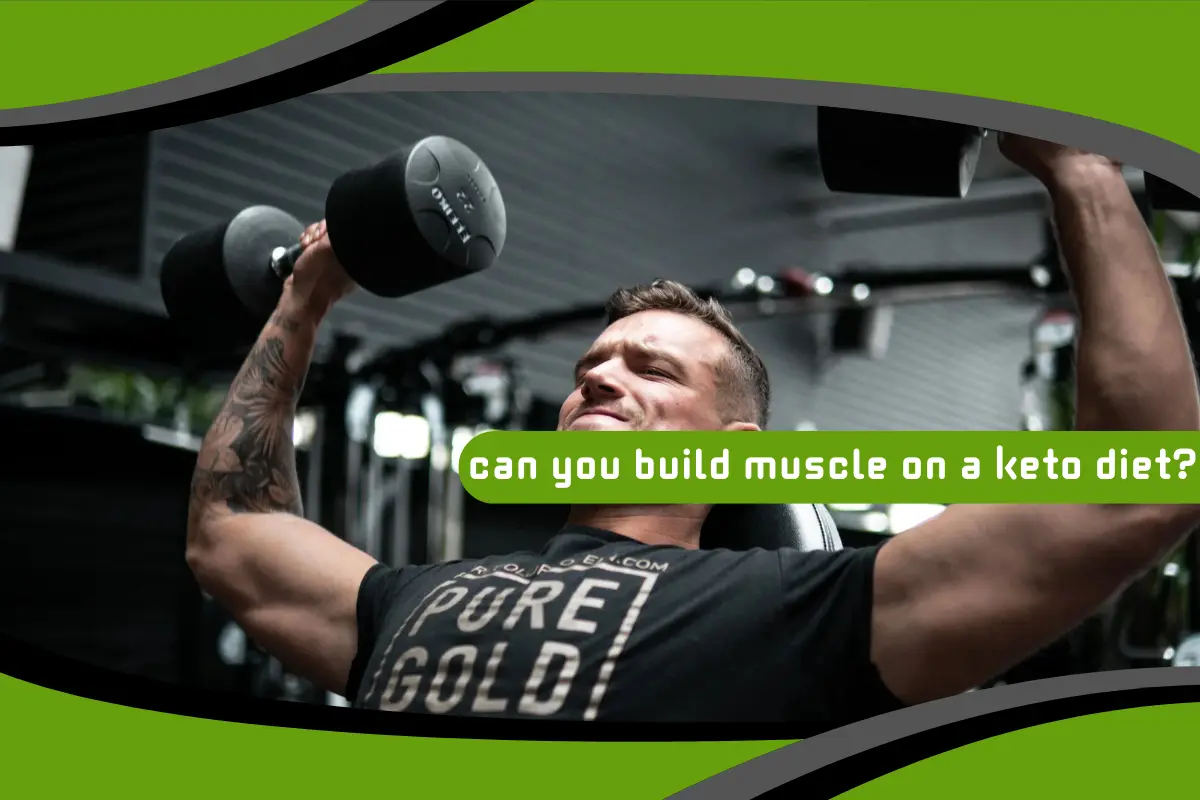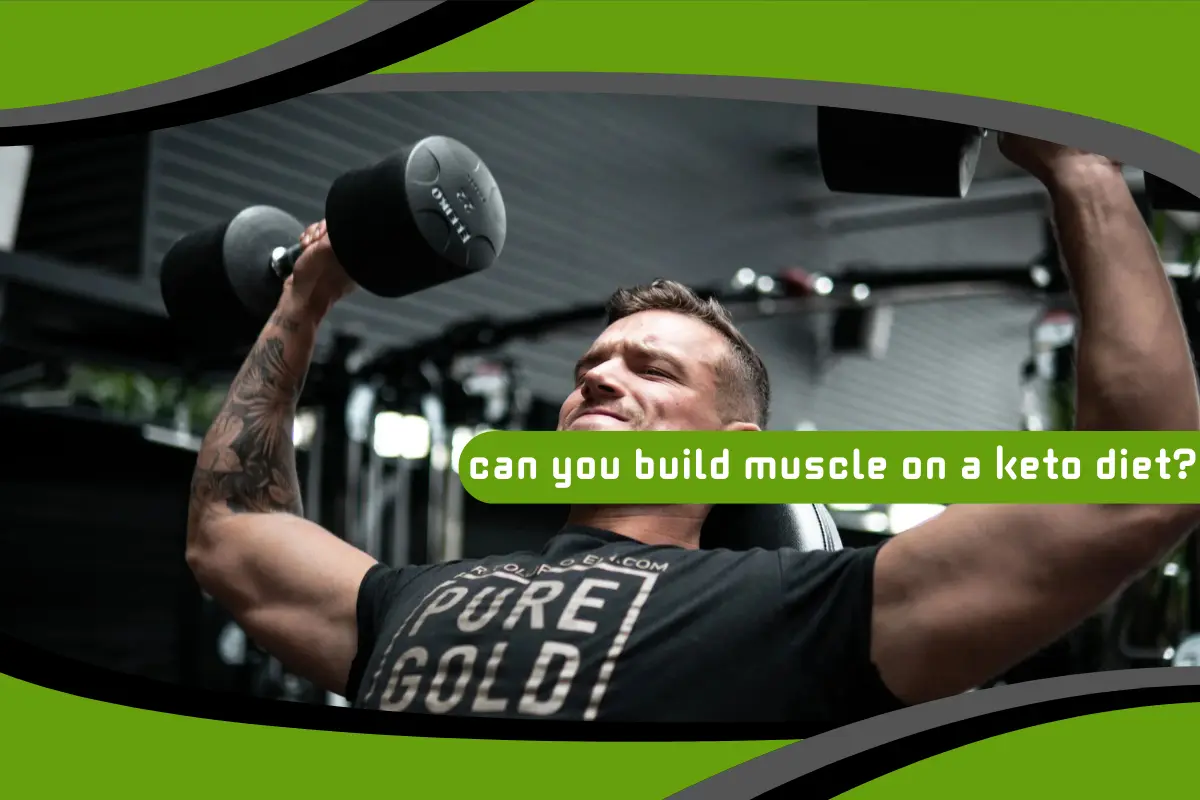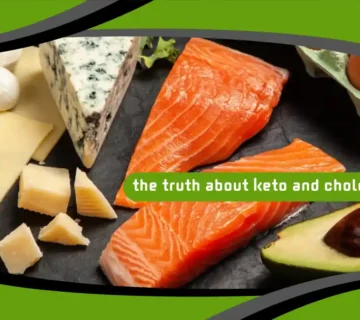The ketogenic diet, often shortened to “keto,” has gained massive popularity in recent years for its potential benefits in fat loss and energy stabilization. However, when it comes to muscle building, many people remain skeptical. The traditional muscle-building blueprint emphasizes high carbohydrate intake, which fuels workouts and supports recovery. Keto, by contrast, is a low-carb, high-fat approach. So, the big question remains: Can you build muscle on a keto diet? Let’s break it down with science, strategy, and a look into how your body adapts to fat-fueled performance.

Understanding the Basics of the Ketogenic Diet
A ketogenic diet involves drastically reducing carbohydrate intake and replacing it with fat. This reduction in carbs puts your body into a metabolic state called ketosis. In ketosis, your body becomes highly efficient at burning fat for energy. It also turns fat into ketones in the liver, which can supply energy for the brain. Most keto diets consist of about 70-75% fat, 20-25% protein, and 5-10% carbs. The shift from using glucose to using fat for fuel changes how your body functions during workouts.
Muscle Growth Fundamentals
To understand if muscle growth is possible on keto, you need to know what drives hypertrophy. Building muscle requires three primary components: resistance training, adequate protein intake, and a caloric surplus. Carbohydrates are not a direct requirement for muscle synthesis. They do, however, play a role in insulin response and glycogen storage, which can affect performance and recovery. On keto, muscle growth is still achievable if the other key components are present and well-managed.
Protein Intake on Keto
One common misconception is that keto is a low-protein diet. While it’s true that protein intake should be moderate to prevent gluconeogenesis (the conversion of protein to glucose), it must still be adequate to support muscle growth. For those aiming to build muscle on keto, protein intake should be around 1.6 to 2.2 grams per kilogram of body weight. This ensures the body has enough amino acids for muscle repair and hypertrophy without kicking the body out of ketosis.
Watch also: How to Safely Transition Off Keto: A Step-by-Step Guide to Reintroducing Carbs Without Gaining Weight
Role of Fat in Muscle Building
Fat serves as the primary energy source on a ketogenic diet. While fat itself doesn’t directly contribute to muscle growth the way protein does, it supports hormone production—especially testosterone and growth hormone. These hormones are essential for muscle development. Additionally, fats keep energy levels stable, which can lead to better workout consistency and improved recovery. Prioritizing healthy fats such as avocado, olive oil, fatty fish, and nuts ensures optimal performance and recovery on a keto plan.
Can You Train Hard on Keto?
One of the biggest concerns for athletes and lifters is whether they can maintain training intensity on a low-carb diet. Initially, you may experience a performance drop, known as the “keto flu,” as your body adapts to burning fat instead of glucose. However, once adapted, many individuals report steady energy, enhanced endurance, and quicker recovery. While explosive, short-duration performance (like heavy lifting or sprints) may initially suffer, it often rebounds with time and proper electrolyte management.
The Importance of Ketoadaptation
Ketoadaptation is the process your body undergoes when switching its primary fuel source from glucose to fat. This typically takes between 2 to 6 weeks. During this time, performance might dip, and recovery can feel sluggish. But once fully adapted, many report enhanced fat oxidation, mental clarity, and endurance. For muscle-building on keto, patience is key. Allowing your body to fully adapt ensures you can train with intensity and recover efficiently, even in a carb-depleted state.
Caloric Surplus on Keto
Building muscle requires more than just nutrients—it demands extra calories. On keto, achieving a caloric surplus might be easier than expected due to the high caloric density of fats. However, appetite suppression is common on keto, which can make eating enough a challenge. Strategic meal planning, calorie-dense snacks like nuts or fat bombs, and frequent meals can help you reach your caloric goals. Ensuring a consistent surplus, without excessive fat gain, is essential for clean bulking.
Targeted Keto for Athletes
Some athletes adopt a version of keto called Targeted Ketogenic Diet (TKD), which involves consuming small amounts of carbs around workout times. This approach allows for better performance during high-intensity training while staying in ketosis the rest of the time. It’s especially useful for lifters and sprinters who rely on glycolytic (carbohydrate-based) energy systems. TKD can offer the best of both worlds—ketosis benefits and performance support during anaerobic efforts.
Cyclical Ketogenic Diet for Muscle Gains
The Cyclical Ketogenic Diet (CKD) is another variation designed for those seeking muscle growth. CKD involves periods of higher-carb refeeds—typically one to two days per week—followed by a strict return to keto. These carb-ups replenish glycogen stores, enhance performance, and provide a psychological break. For bodybuilders and strength athletes, this can be a sustainable strategy that leverages both anabolic and ketogenic benefits. However, it requires careful planning and tracking.
Managing Electrolytes for Performance
Keto significantly alters fluid and electrolyte balance, especially during the adaptation phase. Sodium, potassium, and magnesium levels can drop, leading to fatigue, cramps, and impaired performance. For muscle-building efforts, maintaining electrolyte balance is non-negotiable. Supplementing with magnesium and potassium, salting food generously, and staying hydrated helps ensure your nervous system and muscles function optimally. Proper electrolyte management can be the difference between thriving and plateauing on a keto regimen.
Hormonal Health on Keto
Hormones play a central role in muscle development. On keto, the hormonal environment can be supportive if fat and protein intake are adequate. Diets high in healthy fats contribute to testosterone production, which supports muscle protein synthesis. Moreover, keto has been linked to improved insulin sensitivity and lower inflammation, both of which contribute to better recovery and muscle-building potential. Ensuring you’re not under-eating is crucial for preserving hormonal health.
Watch also: Intermittent Fasting on a Keto Diet: Benefits, Risks, and How to Combine Them for Maximum Fat Loss
Muscle Recovery on Keto
Post-workout recovery is vital for muscle growth. On keto, while glycogen replenishment is slower due to low carb intake, fat and protein play a key role in recovery. Including medium-chain triglycerides (MCTs), omega-3 fatty acids, and high-quality protein after training can accelerate repair and reduce inflammation. Rest, sleep, and stress management are equally important. A well-formulated keto diet supports a recovery process that’s efficient and conducive to consistent gains.
Muscle Definition and Lean Gains
One potential benefit of building muscle on keto is the leaner appearance it offers. Since insulin levels are kept low, fat storage is minimized. This often results in better muscle definition, less bloating, and a more shredded look. While scale weight might not skyrocket like with traditional bulking, keto gains are often cleaner, more sustainable, and visually rewarding. This makes keto a favorable option for physique athletes and fitness models.
Common Mistakes When Building Muscle on Keto
Many fail to build muscle on keto due to simple mistakes: not eating enough, insufficient protein, neglecting electrolytes, or inadequate training intensity. It’s essential to track food intake, train progressively, and monitor energy levels. Supplementing smartly and adjusting macros based on goals are also key. Keto is not a free pass to ignore basics—it simply requires a different strategy. Avoiding these pitfalls can drastically improve results.
Supplementing on a Ketogenic Diet
Supplements can enhance your keto muscle-building plan. Creatine monohydrate remains highly effective, even on keto. Branched-chain amino acids (BCAAs) or essential amino acids (EAAs) can support recovery and muscle preservation. Collagen, vitamin D, omega-3s, and electrolytes are also beneficial. For those using TKD or CKD, carb powders like dextrose or cyclic dextrin can be used strategically. Always prioritize whole food, but don’t shy away from smart supplementation when needed.
Women Building Muscle on Keto
Keto works differently for women due to hormonal variations, but muscle building is still absolutely possible. Female lifters should pay extra attention to thyroid health, caloric intake, and stress management. Moderate protein and sufficient fat help support hormonal balance. Resistance training paired with a well-planned ketogenic diet can lead to impressive strength gains and lean muscle, especially when combined with rest and nutrient-dense eating.
Keto for Vegan Muscle Builders
Though more challenging, building muscle on a vegan keto diet is not impossible. Key strategies include incorporating high-fat, plant-based foods like coconut, nuts, and seeds. Protein sources may include hemp, pea, and rice protein powders, tofu, and tempeh. Supplementing with B12, iron, and omega-3s is essential. Careful planning is crucial to meet macro and micronutrient needs while maintaining a state of ketosis and supporting muscle repair.
Tracking Progress and Making Adjustments
Consistent progress requires consistent tracking. Use tools like food diaries, progress photos, body composition scans, or strength logs to monitor changes. Adjust macros, training, or meal timing based on your progress. Keto is not a one-size-fits-all solution; your body’s response will dictate adjustments. With the right metrics, you can fine-tune your approach to maximize gains without sacrificing ketosis.
Final Thoughts: Keto as a Long-Term Muscle-Building Strategy
While keto may not be the traditional route for muscle building, it offers a viable alternative for those seeking a leaner, more defined physique. With careful planning, strategic training, and proper nutrition, muscle growth is absolutely achievable. The keto diet fosters hormonal balance, sustained energy, and metabolic flexibility, making it a compelling option for athletes and lifters alike. Whether you’re new to keto or a seasoned veteran, your gains are only a plan away.
Watch also: Keto and Cholesterol: What Science Really Says About Heart Health on a High-Fat Diet




No comment